Ferguson Marine, a Scottish Government-owned shipyard, is working with BAE Systems on the Type 26 frigate programme.
This collaboration aims to enhance the competitiveness of the shipyard and secure a sustainable future for commercial shipbuilding on the Clyde.
The Auditor General previously raised concerns about the future of commercial shipbuilding in Scotland. In response, Ferguson Marine has been actively pursuing diversification opportunities, one of which is the contract with BAE Systems. The company is seeking to offset potential increases in total delivery costs due to delays by generating income from commercial work, a strategy that aligns with their long-term goals.
As part of this partnership, several Ferguson Marine workers have been seconded to BAE Govan since January 2023. The company has reassured stakeholders that the secondment does not divert resources away from the completion of the 801 and 802 ferry projects. Instead, this arrangement allows for knowledge transfer and upskilling of the workforce across the industry, a critical factor in ensuring the shipyard remains competitive in securing future contracts.
John Swinney, the then Deputy First Minister of Scotland, said at a session of the Scottish Parliament recently:
“Ferguson Marine, while it acknowledges the potential for an increase in the total delivery cost due to the delay, states that it is looking to “offset” any potential increase through income generated from commercial work. One of our aims has always been to look beyond 801 and 802 and to ensure a sustainable future for commercial shipbuilding on the Clyde, which is one of the issues that the Auditor General raised in his report. We know that the Ferguson Marine team continues to pursue a range of opportunities in order to achieve that shared ambition.
I am pleased to report that the business has been successful in securing new commercial work and has recently entered into a contract with BAE Systems to support the delivery of its type 26 frigate programme. That has involved the secondment of some Ferguson Marine workers to BAE Govan since January this year. Ferguson Marine has been clear to us that those workers are not currently required on 801 and 802, and their secondment is not diverting resources away from completion of the ferries. Moreover, such diversification helps to support the knowledge transfer and upskilling of the workforce across the industry. That is an important factor to ensure that those skills support the shipyard to be competitive in aspiring to future contracts.”
Work on new frigates helps secure Ferguson Marine future
Chief Executive of Ferguson Marine, David Tydeman, recently said that Ministry of Defence work would provide a “solid base” for the future of the troubled Port Glasgow ferry builders.
Mr Tydeman insisted the shipyard was now in much better shape and was ready to re-establish its reputation with new orders.
“We have the opportunity, starting with 802 over the next year, to show we are as good as we were 10 years ago,” he said.
Speaking to the BBC, Tydeman said that the yard has recently secured some new work for BAE Systems, delivering Type 26 frigates. Adding that, Despite the difficulties with the current CalMac ships, the yard is also hopeful of future work for the state-run ferry operator, particularly for smaller vessels similar to ferries the yard has successfully delivered in the past.
Tydeman added that seven planned CalMac vessels, along with Ministry of Defence work, could potentially provide a “solid base” of work for the next five to ten years.
“They are exactly in our sweet spot of what we could do well. We’ve just got to price them properly and deliver them on time – and win some hearts and minds to give us that contract.”


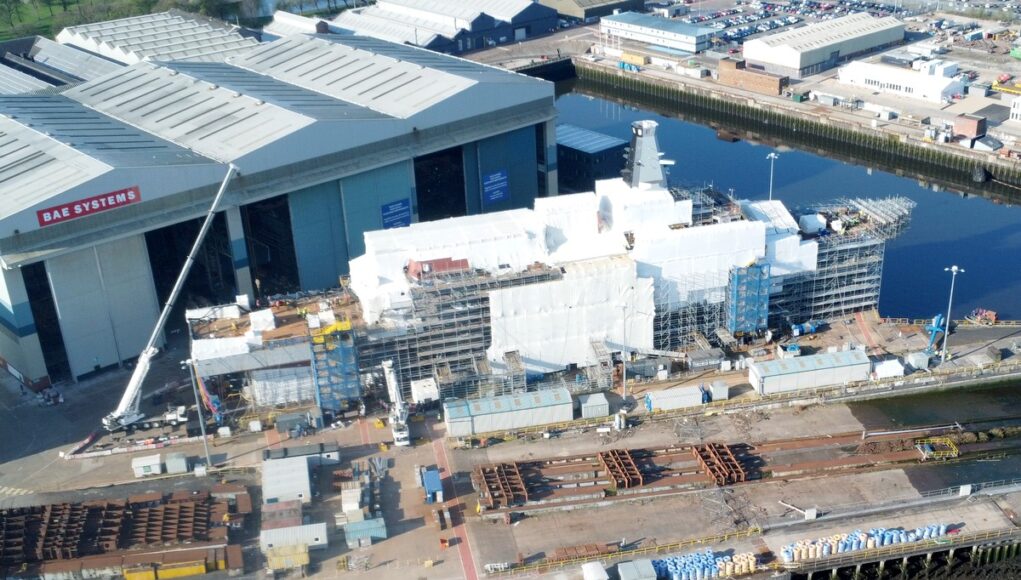
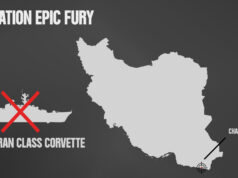
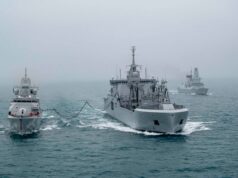

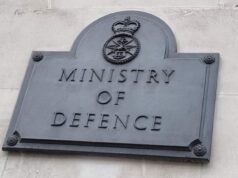


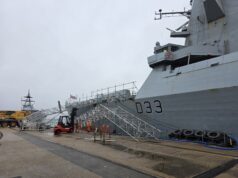
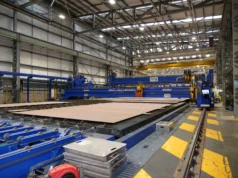
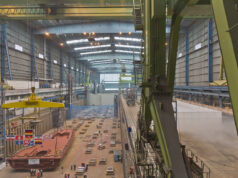


Danger is BAE may poach any competent Ferguson Marine staff they see lowering Fergusons quality further.
That will probably happen.
It’s one major advantage of having four of the last shipyards in the UK in central Scotland in that it is possible for staff to inter change. You can drive from Rosyth to Clydebank in just over an hour and you go right past BAE at Govan to get there.
It was one of the reasons the aircraft carrier alliance was so successful. I know it’s very easy for everyone to bash the SNP and what they have done over Ferguson Marine but I very much hope that the yard survives.
No one wants to see any UK business fail. But had the Calmac contract been managed correctly the yard could have continued under private ownership and no need for the SNP to step in. Its not like Ferguson were screwed by a foreign ferry firm or even a privately run ferry company!!
no argument from me the SNP intervention has been a disaster. reactionary every step of the way but we are where we are and if they had never stepped in there would be no shipyard there now. If the UK and Scottish governments would cooperate rather than blaming each other. If we have a Labour government in both parliaments I am optimistic more can be done. A large part of the governments ship building strategy is Ferry’s and Ferguson marine is the only company in the UK building Ferries.
Politics aside, commercial ships will need to go to international tender or we fall foul of WTO rules that could lead to tariffs on other goods. So we need modern yards that can compete not yards prompt up by any government.
WTO rules have almost nothing about ships and state aid rules are very light. The WTO is nothing like the EU, your not going to be able to run commercial shipyards in the UK without support. France, Germany, Japan, South Korea and every other industrial country plus China and everyone else all give government support direct to shipyards in many forms from direct ownership, subsidies and cheap loans.
There is nothing in WTO rules or even EU rules that stops Calamc ordering Ferries from Ferguson with no tender process. Point in case that’s exactly what they have done and no one has challenged it legally.
Liverpool city region doing the exact same with CL for a Ferry.
The EU did investigate the Calmac contracts.
https://www.heraldscotland.com/news/homenews/20122715.unlawful-state-aid-concern-scots-ministers-fail-inform-eu-ferry-fiasco-interventions/
And UK has not exempted ship building.
https://www.ft.com/content/c77b7aa1-cebc-47c6-a04a-d21eef2d1d38
That’s a failure to inform and it was when we were in the EU. It’s SNP incompetence rather than an inability to build our own ferries under WTO rules.
There’s plenty more articles on the EU and Calmac. Fortunately for the SNP we left so the EU stopped pursuing it. Of course the irony of the SNPs main reason for another vote is to rejoin the EU and therefore mean commercial ships will need to go to tender in the EU.
And as of now we are governed by WTO rules on ferries. So right now they need to go out to tender. We can apply for an exemption but we haven’t. But if we have competitive yards there’s no reason to be afraid of a tender process. CL won the Sir David Attenborough bid against international competition. How do we expect to take part in tenders posted by foreign companies if we subsidise and fence off our shipbuilding industry. Do we want to be the best at it or give up and be an overpriced government supported industry.
Indeed, most nations don’t tend to bother with external tender processes for their strategically important industries..even with the EU there are plenty of exception rules that can be played by a government….our lot are just rampant neoliberals who pretended they had to use the market and competitive tendering “ because they had no other option”…they have pissed away billions of tax payers money making the NHS do competitive tendering…all to prop up the internal market approach, not because we had to..( ask Spain…they never bothered, just used an exclusion).
EU rules were always a favourite for UK politicians and civil servants to do SFA.
Not so much the politicians here but everyone else in theEU bent the rules. Look at Spain and France in particular.
Leaving the EU is in our long term interests in so many fields, although the EU cartels are now set against us which is not good.
So you suggest we be become an uncompetitive government sponsored industrial nation. History shows that normally ends with overpriced poor quality products.
Johnathan. Your analysis of transportation and the railways is not correct. Go and look at the subsidies French and German rail operators get from there own governments. France and Germany in particularly are much more heavily subsidized than the UK, so they’re not getting a leg up from the UK train businesses, in fact theyre a bigger burden on their tax payers and therefore their economies. Then if you look at the best railway in the world, its Japans, privately owned, high quality service. The three biggest companies, JR East, JR Central and JR-West (which account for 60% of the passenger market) receive no state subsidy!!! The rest minimal subsidies. In general its hard to identify where any state has been highly disruptive in travel. The development of steam, flight, cars, now drones all lead by the private sector. Only space travel has been lead by governments and after decades of doing the same over and over the private sector in now showing them what is really possible a costs are dropping through the floor. There no strategic advantage if the government run sector refuses to move on or raise the bar, its actually a strategic disadvantage.
As to the view on markets, they just make money is very simplistic. Markets also attract money, called investors this is used to fund new ventures at no cost or risk to tax payers. They drive innovation because companies in the market need an edge to make money over its competitor or investors flee. Its why East Germans had Trabants and West Germans had BMWs and VWs and lead to them becoming one of the dominant forces in auto-manufacturing globally. But yes markets get broken, generally for the same reason as more socialist endeavors break and fail. Laziness, lust of power, fear of change, greed etc ie humans. However, with markets when they break or cartels form there’s the option for a disruptor to step in and shake it up. There’s been plenty of examples from budget airline pioneers, changing the way we use a phone to new electric car companies changing the status quo. It’s much harder to find examples of government run sectors shaking things or being revolutionary.
I agree. The furore of the moment shouldn’t distract from the prize of re-establishing a top tier ship construction industry in a region that has a historic reputation for pioneering engineering.
agree, not that that’s going to go down well in other parts of the UK will a similar legacy but unfortunately central Scotland is the only place left that might be able to operate at scale.
So tell me how a top tear industry will attract foreign orders when firstly we don’t compete internationally secondly its government subsidised. Top tier industries are generally highly efficient and very competitive prize themselves on driving down costs and being innovative. Not attributes associated with a businesses reliant on government funds.
It’s true industries tend to work best if they are grouped together with other similar industries…it’s why cities tend to get all the “creative” jobs.
I agree, it makes sense as the critical mass of engineering talent is there, it’s effectively one enterprise. If they were really smart some kind of joint training college may pay dividends.
In terms of CALMAC bids maybe BAE should do the bidding and just employee Fergusons as subcontractor – could put alot of minds at rest.
Ferguson Marine have cost the Scottish taxpayer £millions over their incompetent management of the ferries contract. Poaching skilled people may be the start of a takeover of the yard by BAE
Placing portions of the T26 build with Ferguson is a risk, but I expect BAE know what they are doing.
What would BAE want with a tiny yard?
BAE already have much larger footprint yards – better off spending money at Govan where there is loads of space off to the right of the now filled in basin.
The real winner for BAE would be to get a fully automated steel prep and fabrication line in place.
Yeah agree, 101 of lean manufacturing is moving parts or assemblies adds zero value to the part or assembly. Only when you actually work on it do you increase the value. If we want competitive yards lets at least follow some well understood best practices.
As hull 802 is about 90%complete there’s obviously fabricator/welders without work at fergusons , striking a deal with BAE to use the labour shows that there are labour shortages throughout the yards , effectively Fergusons acting as a short term labour supply with BAE paying the wages . And exactly how many are local labour or are they foreign imports , as most working at Fergusons seem to be .
Exactly this.
BAE need labour.
Fergusons needs to get rid of the wage bill!
I suspect BAE don’t trust Fergusons to do anything so want it under their watchful eye……
What about the use of foreign labour , im sure that’s been part of the issues at Fergusons , different quality standards , and this has been transfered to BAE ,also there must be extra expense for agency fees , accommodation and transport costs for these workers, all adding to the bidding costs for new work. There’s a big skilled labour shortage problem .
It is reality that there is a labour shortage which is driving up wages and inflation. Thank BREXIT for that.
But the native labour shortage is structural and goes back to John Major deciding everyone needed to go to university and the Blur / Brown service economy.
Nobody wants to bite the bullet and introduce real tech colleges and apprenticeships. Apparently this would cost money or something…
The fact you would churn out tax payers doesn’t seem relevant….
So which do you want, imported labour from the EU which does nothing for Britain or apprenticeships?
I’d prefer we started training then gradually squeezed the supply of imported labour so that businesses were not crying out for skilled workers.
The economy does need to function during the, much needed, transition!
Work for you?
Not just that, we have woeful productivity 30% below some countries. 2 factors contribute. Lower cost migrant labour and relying on one company to build ships both these factors reduced the business case to invest in automation and increase productivity.
If you decide all ships gave to be built in the UK.
You force amalgamate all the yards to a single provider and give tiny orders so there is no incentive to invest.
Then you throttle investment plant/buildings tax breaks as national policy.
What do you expect?
That’s my point, we engineered a very uncompetitive ship building model. TOBAR gave us some of the most expensive OPV’s on the planet. Its noticeable since the the government encouraged competition we have H&W, Babcock and BAe all investing in new facilities. But there’s risk we end up going back to the old model within 2-3 years!!!
They were expensive because it was part of the government’s mandated minimum spend on ship building with BAE.
HMS Clyde was built at commercial rates and it was 5 times cheaper.
T31 is very competitive by European standards and T26 batch 2 is much more reasonable and way cheaper than anything coming out of the US with a similar scope.
Jim, don’t let facts stand in the way of a good anti-MOD/Government/U.K. bashing it’ll make you unpopular.
As I said now we have competition costs are coming down.
Who in their right mind tells a company hey I’m only going to buy from you? Only those who want their pants pulled down. That’s pretty much what we’ve been doing.
It was a consolidation deal as part of the aircraft carrier alliance and the government had to make a minimum commitment annually to ship building or all the yards would close. In the end we got 5 OPV’s which kept the yard on the Clyde working which has meant they could move to T26 fairly seamlessly.
If Brown had not negotiated that then the Cameron government would have gapped warship production just like they did with submarines at Barrow, they would would have been in the very very expensive position that Canada and Australia find themselves in having to reactivate ship yards at a cost of billions.
If the Lib Dems and Conservative coalition had not scrapped the T22 early and cut the escort fleet down and delayed the T26 then they could have moved from building the Queen Elizabeth’s straight to the frigates and the £250 million figure would never had to have been paid.
As it stands we got 5 OPV’s and the reality is that due to Brexit and waves of illegal migration in the Med and channel those 5 OPV’s were exactly what was needed.
If you want to be a naval power you need to be able to build ships and if you can only afford to keep one surface yard going and you want to piss around with production schedules to save a few quid then you need to pay money to retain those facilities. This minimum commitment forced the service chiefs and politicians to think rationally and longer term.
If Brown had not written in to CVF contract the high cancelation price and had not agreed minimum annual spend then we would have no aircraft carriers, no ship building and a navy with no capability while some smarmy Etonian wan a be Aristocrat would be talking about us punching above our weight while chasing his mates for COVID contracts and facilitating massive fraud.
Instead we have perhaps the worlds second greatest blue water navy with five really expensive OPV’s sailing the world and two production lines knocking out frigates at reasonable costs. That’s not bad for £250 million a year.
i would agree with that.
It’s 30% below the US not anyone else or it appears to be but US productivity figures are much the same as Chinas. Very much for show. If US GDP and productivity data is to be believed then the average America has the same per capita income as Switzerland and everyone is a millionaire. Go to America and show me where that’s the case. It’s much the same as Ireland and Singapore.
UK productivity looked really high when we were the worlds reserve currency too.
UK productivity adjusted for unemployment is pretty much the G7 average, above Japan Italy and France and a bit below Germany. No one can solve the productivity problem in the UK because it does not exist.
So you pretty much disagree with the ONS and other bodies that put us below many of our peers.
There’s countless papers from other bodies flagging UK productivity stagnation.
Your entitled to your view. I work advising companies in manufacturing and I see shortcomings that can be addressed regularly.
Our productivity is stagnating but so is everyone else’s. It’s been going on since 1973 and it’s caused by a slowing down of technology progress.
Every country has the same issue. Your 30% comparison figures is not from the ONS or UK figures but it’s what has been known as the productivity problem in Britain for atleast 20 years. However it’s only in comparison to the US that it shows up or to small tax havens or skandinvian countries with whacky GDP figures.
I’m saying much like the Nordic countries and tax havens the US GDP and productivity figures don’t offer actual comparisons.
The UK has been adversely affected due to Brexit no doubt on that but this “productivity problem” has been around for decades.
No one can say why it exists and weirdly enough when the dollar is riding high it always seems to be worse and when the dollar collapses suddenly we look better. But you can only compare the UK to similar countries which is the other 5 G7 nations and on the metric we look pretty good.
France and Germany have high structural unemployment which can make their per worker productivity look better but when you account for that they all get quite close.
I agree.
We don’t invest enough in new factories / plant / machinery / skills.
Rishi’s super deduction was a really good thing for SME’s.
We are also hood winked that a flow chart automated process replaces people who care. You can have all the processes and QA in the world and if the workers don’t care they just tick all the boxes…..
I was with a manufacturer a few weeks back who’d just replaced some of there inspection processes with 3d scanning where multiple cameras scan a part from different angles. They don’t even need to tell the machine what part it is the system compares the scan to its database and gets the inspection tolerances. There rejection rate shot up, they first thought the equipment was faulty but turned out the manual inspection was letting though rejects. The equipment runs 24/7 so increases productivity massively. The inspectors were redeployed to do a value add job or now do prevention rather than detection.
You get two kinds of QA bias:-
– jobsworth bias; or
– don’t cause trouble for Fred bias.
Some things are best automated!
Unless of course it is the Post Office Horizon auditing system…..
You could add that the south east of England has a higher productivity than most of Europe, but nobody wants to hear that, everyone knows that the U.K. is pants at everything.
But if US figures are to be believed evens the SE of England is very low. It would be middle of the pack if it was a US state. After living in the SE on England I can tell you it’s clearly one of the most high productivity areas on the planet and easily comparable to the California coast or the eastern seaboard but the US figures don’t agree.
FYI the US also knows it’s figures are full of holes, part of the reason is it has no real equivalent to ONS as US federal agencies are massively underfunded outside the military.
The US massive health care costs also make it look like it’s got alot of GDP that’s really just a massive cost. The NHS has to be factored in to our GDP by some quite frankly strange ways but it makes our GDP look lower compared to theirs, we spend 10% of GDP they spend 17% of GDP but if you look at outcomes we achieve more with much better Human Development Indicators.
If you look at HDI and not GDP they UK does really well and the US looks terrible compared to most developed countries.
How can you apparently have so much money yet all your real world outcomes suggest not. Easiest answer is US figures are massively inflated due to the status of the dollar also the crazy budget deficit levels the US is running. Remember GDP only really measures spending and almost everything else in international financial comparison follows on from that.
If your spending on the credit card it don’t make you rich or productive.
Don’t worry SB. Rishi says we have an anti-maths culture. All our young people are going to study maths to 18. Problem solved….
Q.E.D. – “quod erat demonstrandum” or Quite Easily Done as my old maths teacher used to say.
Sorry couldn’t resist that 🙂 Sadly, its about the only bit of my O Level maths I can remember…
Cheers CR
No apology necessary. Pardon my flippancy in the first place but I couldn’t resist the sarcasm. Good maths is a necessary but not sufficient condition to solve a deep rooted UK cultural problem.
Blair decided everyone should go to University. I agree though we need some form of tech offshoots, because these can best be served in my thinking by having a link with full universities.
Any workers at BAe will need to be security cleared, so pretty much means UK passport holder.
So you reckon all current BAE employees are UK passport holders , I don’t think so , I believe there are large numbers of EU personnel working there as is the statutory right for freedom of movement and employment .
Nothing to do with freedom of movement and everything to do with mod security clearance.
A lack of UK residency won’t inherently stop you from achieving a security clearance, but the decision-makers will need to consider what checks can be carried out and the information available to make a decision. Depending on the type of security clearance you’re applying for, this may range from three to ten years.
In my experience its much harder to get clearance for foreigners.
It’s basic level clearance for fabricator welders we are talking about , I’m sure it’s as easy to check non UK workers as it is UK residents .On a personal level I worked years ago for a consultancy on various design projects for new naval warships and had access to classified information collected from the disastrous campaign in the Falklands which highlighted many deficiencies in warship design and capabilities , I don’t remember my security clearance being a big deal then.
Are a UK citizen with no criminal record etc. If so it’s not a big deal.
They look for things like debt where you may be influenced by a foreign actor offering money. Those checks are harder to do if not all your records are in the UK.
It will of course depend on the job, but I’d be very surprised or even concerned if bae let unclear personnel near our latest frigate.
Any match has a lost match analysis.
Our post match analysis was a mixed mixed bag.
They can be summarised as:-
– WW2 era radars were not up to the job
– Gen1 missiles Sea Slug & Sea Cat were worse than useless
– frigates that were not meant for blue water use were not much use for blue water use
– Sea Dart needed the upgrade, for low level use, that RN had asked for and Nott had rejected
– DC doctrine needs to be front and centre
Positives
– modern ships with a proper radar and missile system like T22 were very good even with a, still in development, Sea Wolf
– well trained Harrier pilots did a great job
– NGFS was very useful
– RN crews are generally very good even fighting with the wrong ships and systems
In other news
– AEW was necessary
– RAF covert radar cover was fouled up by some badly though through SF as Chile withdrew basing.
– badly thought out SF operations end badly
TBH there wasn’t much in that list that wasn’t known well before Corporate and most of it is common sense anyway.
If you ignore the pro battleship bias in this document it is a reasonable summary. I’ve posted the link before.
https://apps.dtic.mil/sti/pdfs/ADA133333.pdf
– Which can be summarised as small cheap ships are not worth it in conflict
– There is a pertinent mass / vs force generation calculation re carriers
Anyway…..
Just read the American report and as usual they would have won the battle on the first day by use of vastly superior numbers of ships Aircraft and manpower /equipment , so to compare UK to USA in this instance is a joke. And just for information every British warship was hit by at least three bombs which failed to explode because the Argentines flew too low and the bomb detonators failed to connect on impact . So we could have lost the lot to Davy Jones’s locker.
Good job we didn’t then init.
It is all well and good to knock the SNP / Fergusons fiasco (it’s not exactly hard), but isn’t it just another example of U.K. politicians who just don’t get Industry.
Can anyone name a single MP, MSP or MS with an industrial background ?
Despite the Politicians efforts or lack of, there are still companies who build things, train Apprentices and nurture their workforces but they are far to few.
The people of Scotland rely on the Ferries for some it is their lifeblood, and it would be shameful to build them overseas when we still have shipyards.
If I were the U.K government, I’d intervene and use some central funds to ensure future Ferry’s are UK built.
Let CL, Fergusons and Appledore tender separately or in partnerships but ensure they are properly funded and competitive.
I hate to say it but France has the right approach.
Agree, we need more MP’s from industry rather than political university courses.
Also agree that like other EEC/EC/EU nations, UK should have found ways to fudge the rules so that industry was protected from foreign state supported yards (but not at the expense of retaining the working practices from the 50’s).
The loss of proper apprenticeships and technical colleges has been a disaster, falling right at the feet of the MP’s and Educationalists with their campaigns for everyone to go to university (led by a political desire to fudge the youth unemployment figures and in knowledge that we could simply steal trained staff from abroad rather than support the youth)
Re the ferries, agree, but sadly a lot of that ship has already sailed with several orders now placed in Turkish yards (4 ships?). Again, the blame for this can be spread far and wide from the lack of trained staff due to the above, to the failure of companies & unions to modernise from the 50’s onwards, to the implementation of EU state aid rules, & the stubbornness of CALMAC / CMAL to design the right ships (too big for current infrastructure, aboard sleeping requirements etc)
I am lucky enough to live in a City and region that still has engineering, high end technology and manufacturing at its heart. The main companies and the local councils / schools and universities work together to ensure that there is a pretty good pool of potential apprentices and suitable courses (company funding to the Universities helps).
The key to it working properly (and up at Barrow BAe do the same) is ensuring the apprentices get the hands on training but also a University degree as well. It really is a win, win for them as they get their job, money, a degree and zero debt.
There is also a side benefit to the emphasis towards ensuring Science, Maths, English and Technology in the Schools Academies. Those that go down the University route tend to gravitate towards medicine, science, architecture, IT etc so it has social benefits as well.
IMHO and I have to admit I am biased is that the U.K doesn’t give Engineers the same social recognition as some continental countries. Here Dr is either Medical or PHD and is the legal title of the person, Dipl Ing has the same status in many countries and is a title of respect.
Sorry but when someone who worked at RR and Associates designing bits for submarines is asked “what they do for a living ?” and they answer “I’m an engineer” the next bit shouldn’t be about how to fix their washing machine.
Sorry rant over.
The medical profession tried to hijack Dr from us PhD’s too which would have been a ridiculous reversal of reality.
I agree that a chartered engineer deserves a lot of respect.
The problem is that ‘engineer’ isn’t a protected title which it should be and it is debased by such things as the BT/OR linesman being described as an engineer.
If I were the U.K government, I’d intervene and use some central funds to ensure future Ferry’s are UK built.
They can’t or if they do risk tariffs on other goods, there’s WTO rules that govern commercial contracts. Have google of Boeing/Airbus WTO dispute, tariffs were placed on goods unrelated to ship building.
UK is the 9th largest manufacturer in the world and by value per person manufactures more than China does per person.
https://www.europeansprings.com/uk-worlds-ninth-largest-manufacturer/
Gillian Keegan. server her apprenticeship at a UK car plant and John Swinny worked in the yards. So there’s at least I know of.
Add Chi Onwurah from Laboour she is a degree qualified engineer worked a tit for 20 years and pretty proud of that. Interesting to read some her viewpoints on this subject.
Well nothing new in the labour force going where the work is for their trade. The Work in Portsmouth had mostly ‘foreign’ workers as there were few with the required skills in Portsmouth so most of the skilled workers came from Scotland. It is the way of such construction industries the work force goes with to the work regardless of where it is.
Why do we need outside workers? Simple we killed off all the yards some years back and no one was getting trained how to do the works. It takes years to learn such skills and that’s a fact.
And let us not forget we build the most of our ships in the UK for the RN/RFA whilst the other services go shopping abroad to get their kit. A once World leader in many fields is now but a back water its very much sad to say – and not all the Gov’s fault either but greedy shareholders selling off the crown jewels for a quick buck 🙁
Shareholders don’t do that with well run businesses. Most shareholders are pension funds and they look for good, reliable, long term returns. If they’re selling off it’s for one of three reasons as I see it: the management is incapable of running a good and reliable business; 2. The government has made running such a business impossible, 3. Overseas competitors are simply better and/or cheaper.
We all know that these three reasons have characterised British industry for decades… So why would a capital manager invest yours and mine savings in such businesses? Want to turn it around, we need better management, supporting government policy and long term industrial-goverment partnerships to drive long term productivity but I don’t see why our pensions should be invested in businesses and industries with little to recommend them.
Ferguson yard do not deserve any work what a mess with ferries
O/T: Could the UK buy a few Freedom Class Ships from the US? or Independence Class, would help with our escort numbers. What would be the issues with that? Lack of manpower, kills UK industry? I still say build T26/31/32/82 but these would be on top. Answers on a postcard/UKDJ Forum 🙂
https://www.thedrive.com/the-war-zone/navy-wants-to-sell-off-six-nearly-new-littoral-combat-ships
You have to be joking. Both Independence and Freedom classes are pointless from an RN standpoint.
After the present fiasco they should not be allowed to tender for calmac work or any ferry work, they’ve already cost the taxpayers a fortune
If that is true, then hopefully they will be more competent than under the bankrupt SNP stewardship and the non appearance of the ferries and a few hundred million lost.
We really don’t want them to take over looking at the ferry that launched and is fitting out there are still things like LNG tank sensors missing which means it will be running on diesel and the like amongst other things.
This thing is a costly mess I don’t want to think what her internal layout is like or where corners have been cut.